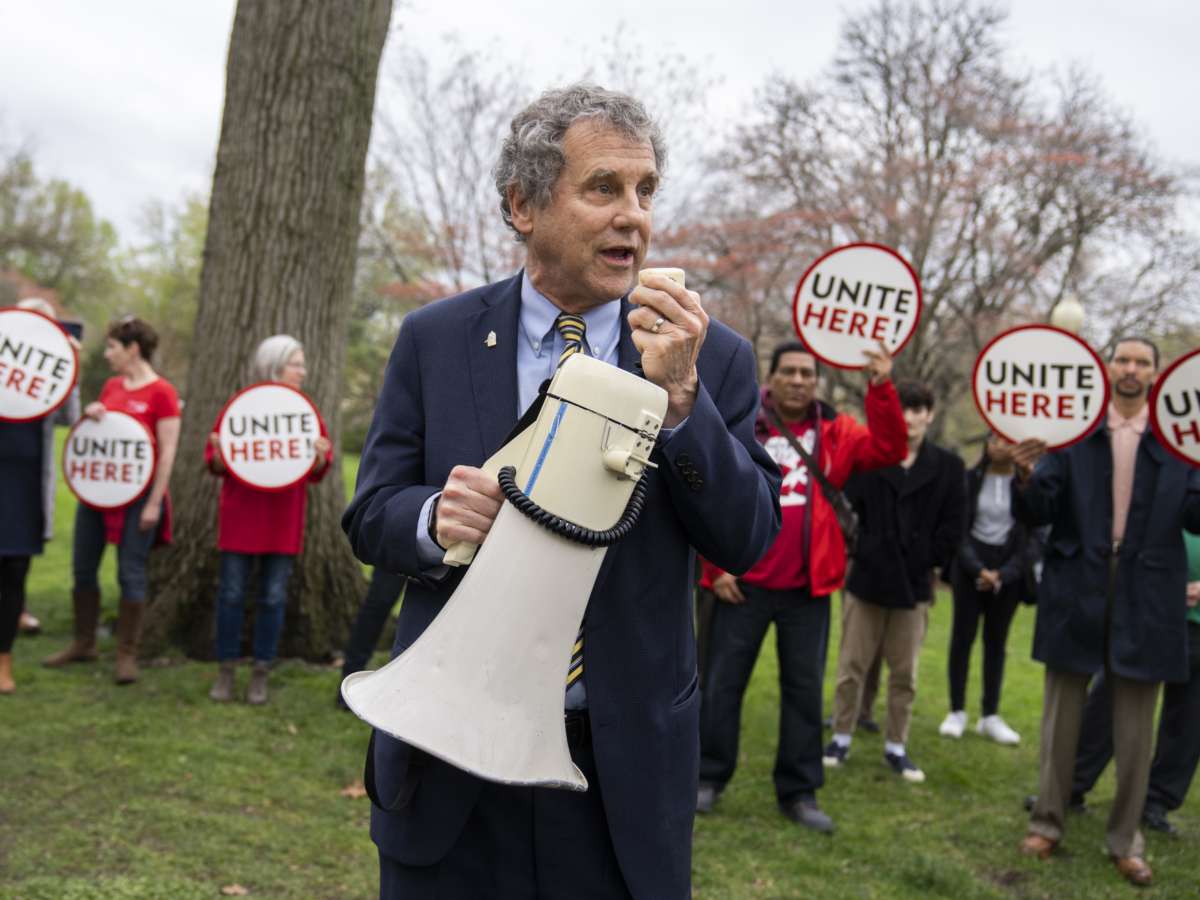

The workers, who formed with UNITE HERE late in the year, but do not have a formal collective agreement, were joined on picket line last week by a stellar cast of lawmakers representing both houses of Congress.
“Just because we have a fancy title or wear a fancy pin doesn’t mean we can’t show solidarity with you all,” said. Rep. Cori Bush (D-MO). “I’m sad that you have to be out here in the first place. As the proud daughter of a former union member, please know that you have folks who have these titles and wear these pins who support you.”
Senator Bob Casey (D, PA) called attention to the fact many of the Senate employees at risk were working through a deadly pandemic and the January 6 insurrection.
“The people who were here on January 6 trying to make sure the Capitol could function are the same ones we are trying to protect today,” said Casey. “The least we can do is make sure that those workers have their dignity affirmed by making sure that they are employed, paid a fair wage, and have the benefit and protection of a union.”
The deal was facilitated by Sen. Amy Klobuchar (D-MN), who chairs a committee that oversees contracts under which cafeteria workers work. The Architect of the Capitol’s office is expected to use $3.75 million from previously appropriated Covid relief funds to prevent the cafeteria worker layoffs.
“When I see all your faces, I think about everything you’ve been through,” Klobuchar told the picketing workers. “You were here on the frontlines. You were there in the cafeteria. […] It was really hard, and you hung in there for us.”
Klobuchar and 17 other senator colleagues were present in protest. submitted a letterMajority Leader Chuck Schumer, D-NY, and Minority Leader Mitch McConnell(R-KY), to urge them to provide funding to continue the employment of Senate cafeteria employees.
“The current pay and benefits available to Senate cafeteria workers are already shameful,” wrote the senators. “For these workers to be laid off after serving this body throughout the Covid-19 pandemic in these conditions would be a stain on our institution.”
Senate cafeteria employees are the least likely to be able to access health and retiree benefits through an employer of all workers in federal cafeterias around Washington, DC. According to the study, only 18% have employer-sponsored insurance for their health and none are enrolled into employer-sponsored pension benefits. UNITE HERE.
These workers will serve as temporary staff for some of the wealthiest members of CongressEach and every day, none of them visited the picket lines. Bain Capital has made Sen. Mitt (Republican from Utah) worth more than $85million. Sen. Mark Warner (D.VA), is a former executive in venture capital. His net worth is more than $93 million. Sen. Rick Scott (R-FL) — the richest member of Congress — founded two healthcare companies and is worth an estimated $200 million.
However, preventing more than 80 workers from losing their jobs is only temporary. This is not the solution to a larger problem on Capitol Hill. Senate cafeteria workers are still negotiating their first contract. House staffers, who have complained for years about their work schedules, low wages and lack of diversity in their workplace, are seeking to unionize.
“Essential workers all across the country have died during the pandemic because they went to work,” said Sen. Bernie Sanders (I-VT) on the picket line. “Ultimately as we build the union movement in this country, what we are fighting for is an economy that works for everybody, not just a handful of billionaires. You are part of that growing movement.”
